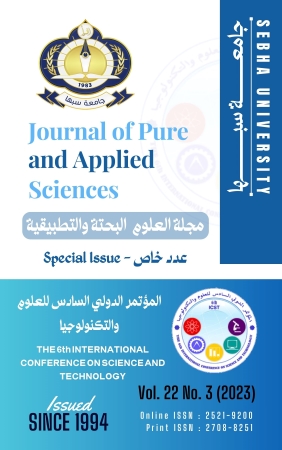Investigation of the effect of the Reservoir Rock Compressibility on Oil Recovery Factor during Gas Injection
Abstract
A type of EOR, secondary production includes water flooding and gas injection. Normally, gas is injected into the gas cap and water is injected into the production zone to sweep oil from the reservoir. A pressure-maintenance program can begin during the primary recovery stage, but it is a form of enhanced recovery. The main purpose of this report is to investigate the effect of the reservoir rock compressibility on oil recovery factor during gas injection. The problem statement of this study is firstly, as the reservoir oil and gas production under primary conditions, causes the reservoir pressure to decline. Secondly, A gas injection is required to re-energize or “re-pressurize" the reservoir. The main objective of this project is to investigate the effect of the reservoir fluid densities on oil recovery factor during gas injection. By using ECLIPES Software, we model the data and find out the best prediction of gas injection that is suitable for the available field data. It is proven that the optimum oil production is by injection a high amount of injection rate. The highest increase in percentage of the total gas production is when an injection of 54 MMSCF is 0.58 %. The higher the compressibility value of the rock, will give the higher the rate of oil and gas production. The relationship between oil rate, gas rate, pressure, and oil recovery factor are directing the compressibility of rocks is a direct relationship.
Full text article
Authors
Copyright (c) 2023 Journal of Pure & Applied Sciences

This work is licensed under a Creative Commons Attribution 4.0 International License.
In a brief statement, the rights relate to the publication and distribution of research published in the journal of the University of Sebha where authors who have published their articles in the journal of the university of Sebha should how they can use or distribute their articles. They reserve all their rights to the published works, such as (but not limited to) the following rights:
- Copyright and other property rights related to the article, such as patent rights.
- Research published in the journal of the University of Sebha and used in its future works, including lectures and books, the right to reproduce articles for their own purposes, and the right to self-archive their articles.
- The right to enter a separate article, or for a non-exclusive distribution of their article with an acknowledgment of its initial publication in the journal of Sebha University.
Privacy Statement The names and e-mail addresses entered on the Sabha University Journal site will be used for the aforementioned purposes only and for which they were used.

